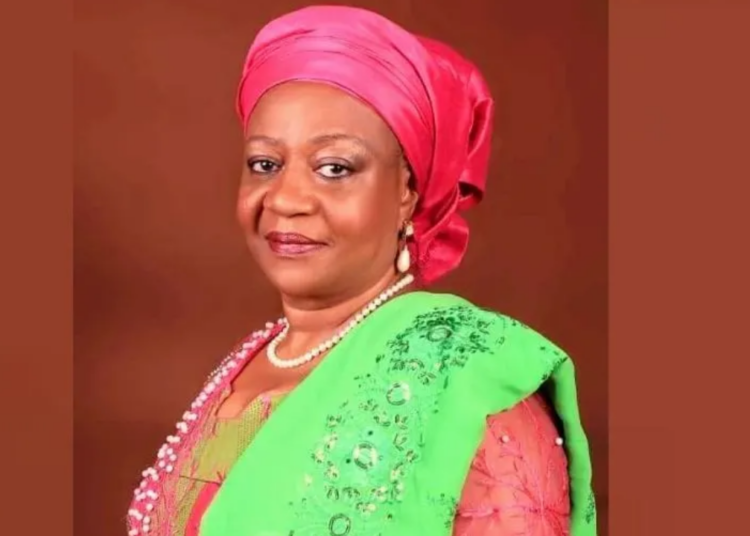A former chairman of the Governing Board of the Niger Delta Development Commission (NDDC), Senator Victor Ndoma-Egba, SAN, has advised the current chairman of the interventionist agency, Lauretta Onochie, to be guided by the provisions of the Establishment Act of the Commission.
Ndoma-Egba, who spoke in an interview, stated that the law establishing the NDDC provides for the powers of the Board and that of Management of the Commission, noting that although the overall powers of managing the Commission resides with the Board to provide the policy direction, the management has the responsibility for the implementation of the policies.
He observed: “Ordinarily, there shouldn’t be a problem because the powers are clearly defined. But you see, where the problem comes is on the issue of control of funds. That is where the issue comes in because the various laws; Fiscal Responsibility Act, and even the NDDC Act, makes the Chief Executive Officer the accounting officer, and in some cases, liability for infractions of those laws are personal to the Chief Executive.”
Ndoma-Egba also noted that the Chief Executive Officer could not spend outside the budget, which must be approved by the board.
“So, all you need do is to exercise the powers that have been given to you in a very creative way that will check the board without necessarily impeding the running of the Commission,” he stated.
He said further: “The chairman is not an executive chairman; so, you cannot say as chairman, I have decreed A, B, C or D. You need the approval of the Board. So, I think that what is causing the confusion is a misapprehension of the law establishing the NDDC. Either a misapprehension or it hasn’t been properly read.
“The law does not have any powers attributed to the chairman. The powers of the chairman are the powers of the board and when we started, the first thing the board did was to donate their powers to me as chairman, to act in urgent cases. But you always came back to the board for them to ratify what you had done. So as chairman, you don’t have any special powers. The powers of the chairman are coterminous with the powers of the board. It is the Managing Director that for instance, is named as the chief accounting officer and by virtue of the extant laws, he is personally liable for the infraction of those laws.”
Ndoma-Egba regretted that the NDDC had not been allowed to grow, thus denying it of an established tradition, adding that: “By now, apart from the law, we should have had an established tradition, because NDDC was established in the year 2000, that is long enough for certain things to be the tradition. But there is no board of NDDC that has survived its full term. So those traditions haven’t been established, and then there is too much outside interference.”
The erstwhile NDDC chairman recalled that in 2006, the then President Olusegun Obasanjo launched an elaborate regional development Master Plan, generated by Niger Delta stakeholders; state governments, oil companies, development partners and oil-producing communities.
He lamented that the plan, envisaged to last for 15 years was abandoned, leaving the region without a road map. He wondered how the entire Niger Delta region could be developed without a plan.
Ndoma-Egba remarked: “The starting point was to either revalidate the initial master plan which had a 15-year life span and had expired, or get a new master plan. So, we were in the process of developing that master plan. We were already talking with the government of Sao Tome, for them to deploy their excess internet capacity to Niger Delta region because all the trunks that are coming from America and Europe meet in Sao Tome before they are distributed to different parts of Africa.
“Sao Tome, is an Island nation, with about 200,000 people, but the capacity they have is far more than what we have in Nigeria with 220 million people. So, we were in talks with them; in fact, they were willing to even give us their excess capacity plus their telecommunication companies. But it was at that point that the board was abruptly dissolved. We had already gotten approval in principle.”
He said that the NDDC Board under his leadership recognised the fact that “oil is a finite resource and it is a question of time before funding becomes an issue. So, we decided not to depend on oil anymore.
“We came up with the idea of a Niger Delta Development Bank and we got approval in principle, from the then Acting President, Professor Yemi Osibanjo. So, we were working on the bank, a development bank that will take over all the mega projects so that their sustainability doesn’t depend on who was on the Board.”











